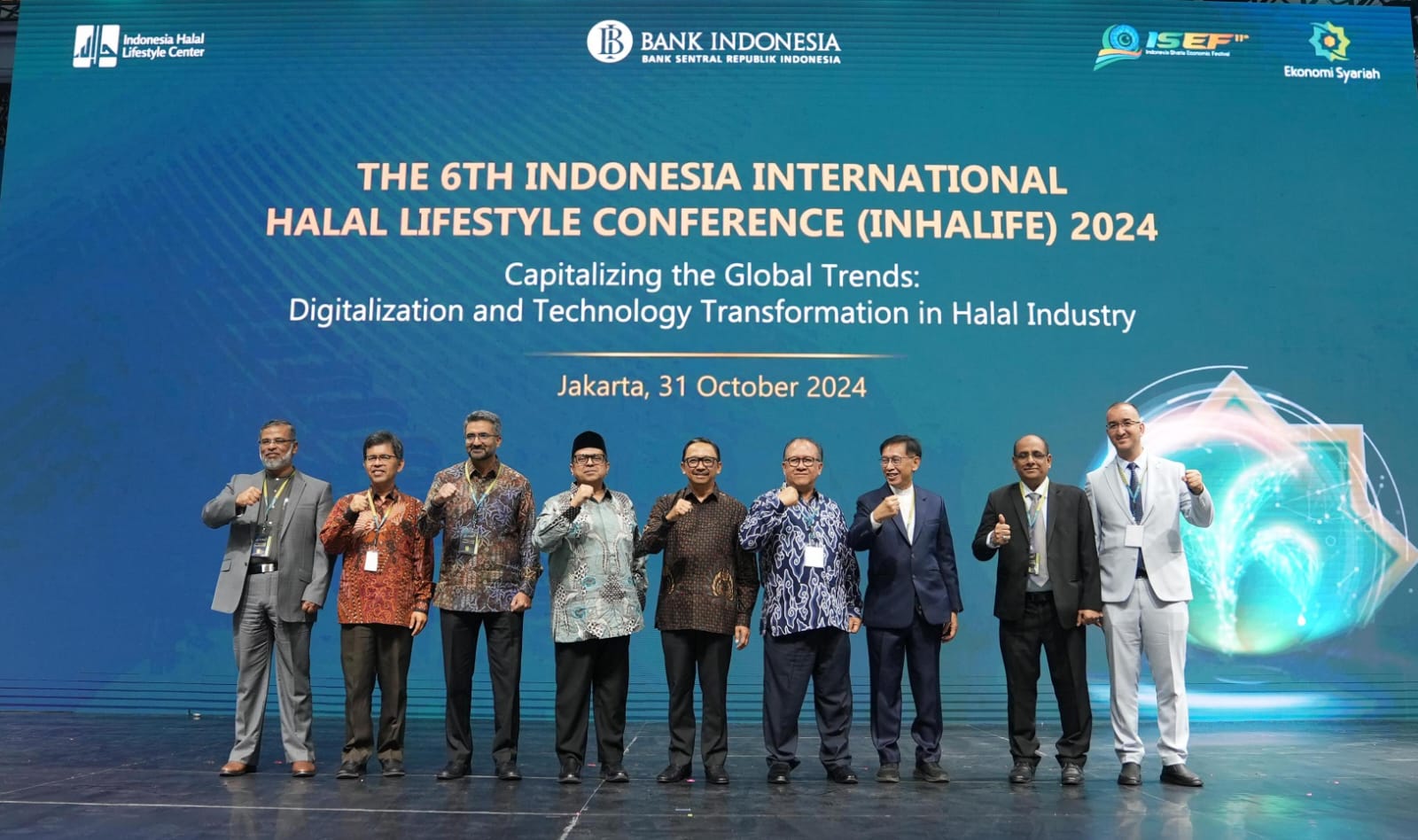Indonesia stands at the forefront of the global halal industry, possessing immense potential to emerge as a key player. To realize this potential, digital transformation and technology are essential for the advancement of Indonesia’s halal sector, especially amidst the rapid growth of both halal markets and digitalization worldwide. This was emphasized by Juda Agung, Deputy Governor of Bank Indonesia, during the opening of the 6th Indonesia International Halal Lifestyle (INHALIFE) Conference 2024, themed "Capitalizing the Global Trends: Digitalization and Technology Transformation in Halal Industry," held in Jakarta on October 31.
In his address, Juda Agung outlined five key strategies to accelerate digitalization in the halal industry. The first strategy involves leveraging digital e-commerce platforms to market halal-certified products. This is crucial for expanding the reach of local businesses and enhancing consumer access to certified products. The second strategy focuses on adopting digital payment methods, such as QRIS, to facilitate easier and more inclusive transactions.
Additionally, he highlighted the importance of utilizing sharia-compliant digital finance to boost funding for halal businesses. The fourth strategy includes implementing halal traceability systems to strengthen the ecosystem that guarantees the integrity of halal products, enabling consumers to trace the origins of products from production to consumption. Finally, the fifth strategy emphasizes the use of digital halal certification systems powered by Artificial Intelligence (AI) to streamline and expedite the certification process.
Juda Agung also stressed that the digitalization of the halal industry encompasses more than just technological adoption; it requires the establishment of an open, efficient, and fair ecosystem for halal products to thrive in Indonesia.
A notable initiative launched during the conference was the Enterprise Resource Planning (ERP) Integrated Farming Information System, known as Simfratani. This digital platform aims to support agricultural programs in Indonesia by monitoring and reporting planting and harvesting activities. It is designed to assist in mapping food needs and production while providing real-time data on agricultural developments across various regions.
The INHALIFE conference is part of the ISEF 2024 series, running from October 30 to November 3, 2024, at the Jakarta Convention Center (JCC). The event features a range of experts in the halal industry, practitioners, consultants, and business stakeholders discussing advancements in Indonesia's digital sharia economy, the application of digital technologies in halal businesses, and fostering collaboration among various entities to build a robust halal digital ecosystem.
To further strengthen this ecosystem, the 2nd Indonesia International Halal Chef Competition (IN2HCC) is being held concurrently with ISEF 2024. This competition brings together international halal chefs to showcase their creativity in halal food products. This initiative aims not only to educate the public about halal food but also to create opportunities for Indonesian halal food products to penetrate global markets.
Read More






 Saturday, 31-01-26
Saturday, 31-01-26







